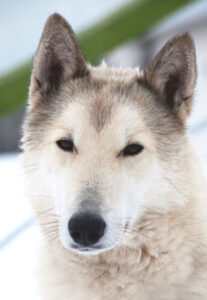Laws – Legislation
Mankind has engaged in acts of cruelty and barbarism for as long as he has walked the earth. Laws and legislation exist in every country to protect one man from another and they work with varying degrees of success. As we know from listening to the daily news, we are a long way from a kind and gentle world. I sometimes wonder if there is a genetic defect in humankind that prevents him from evolving past his current state.
So knowing how humans can treat one another – is it any wonder that animals suffer so abysmally around the world? Please note that I am not saying that all people are cruel – for kindness is in evidence everywhere – everyday. What I am speaking of is what the human collective will tolerate as acceptable behaviour.
Animal cruelty globally is a complex problem – not easily solved. What is acceptable in one culture is not in another. A global moral compass concerning animals is missing. Problems persist even with the definition of cruelty. Is a certain behaviour deemed to be an offence, cruelty, abuse, inflicting harm or is it neglect? If neglect – was it an action that caused the cruelty or the lack of an action? Was the act deliberate or accidental?
Laws in Canada pale badly in comparison to those in many countries in Europe, New Zealand and Australia. The Animal Legal Defence Fund (a USA based organization) found in 2012 that the worst locations in Canada for tolerating animal cruelty were Quebec and Nunavut. The best provinces were British Columbia – Manitoba and Ontario. Canada is failing as a nation to bring needed change to antiquated laws and animal welfare issues. In some cases we are still using laws that are over 100 years old.
In 2003 the Senate stood in the way of passing a bill to change our antiquated legislation even thought it had been passed twice by all parties in The House of Commons. What did the Senate have to gain?
In Canada many serious animal abusers are never prosecuted? If an animal abuser even makes it into the Canadian legal system – time in jail is limited or non-existant, fines are paltry and bans on future animal ownership are limited. An animal, if still alive, is often returned to an abusive owner. Even the high profile Sled Dog case in British Columbia after the 2010 Olympics was a travesty.
Various reports in that case stated that the number of dogs killed was between 56 to 100. I don’t know the accurate number. Supposedly only nine of them suffered cruelly. But at the end of it all – Robert Fawcett, the former general manager of Whistler based Howling Dog Tours (the parent company was Outdoor Adventures) received no jail time.
He faced a maximum penalty of five years in prison and $75,000 in fines.
His sentence:
1) 3 years probation.
2) 200 hours of community service.
3) A $1725.00 fine.
4) A 10 year ban on gun ownership.
5) A 3 year ban on involvement with the sled dog industry.
Fawcett had the gall to play the post-traumatic stress disorder card after the April 2010 killings as he described how he had shot or cut the throats of the panicked animals and then dumped them into a mass grave.
The judge was a coward – Justice was not served.
And this is just one case – in one province – in one country in the world. In Canada our elected officials lack, and we do not demand, sufficient political leadership to make changes to animal welfare laws. Political will and political courage are missing and there just isn’t enough political capital to be earned from animal issues to make them a priority. This has to change, and it can and will, when enough people get involved.
William Hogarth was an English painter, printmaker, satirist and social critic who lived from 1697 to 1764. He made his living as an artist and he did 4 illustrations called The Four Stages Of Cruelty. His intent was humanitarian and his hope was to prevent or curtail the cruel treatment of animals in the streets of London.
These words are penned beneath the second illustration which depicts a downed carriage horse with a broken leg being beaten by its owner on a city street. Beside the horse another man beats a lamb who has displeased him.
The generous Steed in hoary Age
Subdu’d by Labour lies,
And mourns a cruel Master’s rage,
While Nature Strength denies.
The tender lamb o’er drove and faint
Amidst expiring Throws
Bleats forth its innocent complaint
And dies beneath the Blows.
Inhuman Wretch! Say whence proceeds
This coward Cruelty?
What Int’rest springs from barb’rous deeds?
What Joy from Misery?
And the question that begs an answer from humankind – as so eloquently penned by Hogarth is – What Joy from Misery?
Fortunately many people are working tirelessly on behalf of animals worldwide. I remain hopeful.




